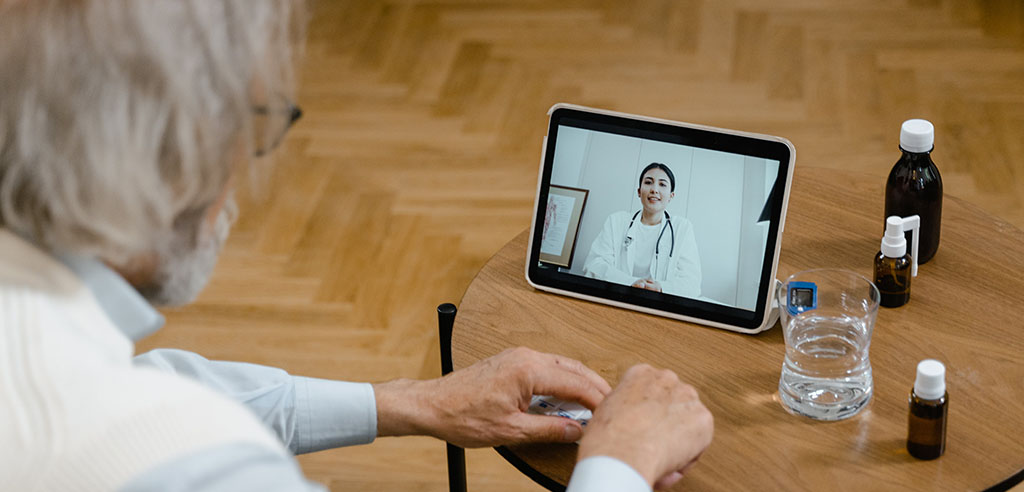Medicine is usually a high-paying field, but as a doctor, sometimes the income from your job might still not be enough. Read on for a look at why many physicians need side hustles and which gigs are particularly suitable for those in the medical profession.
01. Benefits of having a side hustle as a physician
At first glance, the idea of a doctor looking for a side hustle might seem odd. After all, medicine is a demanding field with long hours and high stakes, and you have to pour so much time (and money) into becoming a physician in the first place. Why would you possibly want a second job?
As it turns out, there are quite a few reasons:
- Paying off your student loans: Medical school debt can be crippling, and the faster you can pay it off, the better. Earmarking the income from your side hustle to pay off your debt is a great way to speed up that process. (Of course, you can also use it to pay off any other types of debt you happen to be in, such as credit card debt.)
- Saving for retirement: This one is self-explanatory. Sure, you’re probably already putting money away for your golden years, but if you want a higher income in retirement or you’d like to retire early, making extra money will help. Having a side hustle is a particularly good idea if you’re pursuing the infamous FIRE method (FIRE stands for “Financial Independence, Retire Early,” and it usually involves extreme frugality with a focus on earning and saving as much as possible).
- Saving for a big purchase: Conversely, maybe you feel like after all your hard work, you’ve earned yourself the right to buy a boat so you can spend your weekends fishing on the lake. Maybe you want a second home where you can spend your vacations. You might be able to afford these luxuries without a side gig, but it’ll take longer.
- Pursuing a promotion: Some of the side gigs on this list develop skills that will put you on track to earn a nice promotion (or that pay rise you’ve been craving). Even if you’re not actively trying to climb the ladder, taking on side hustles related to your profession can help you expand your network and make a name for yourself in your field.
- Preparing for a potential career change: The reality is that being a physician might not be your one and only passion. Even if you do enjoy your work, you might want to explore other options further down the road. Taking on a side gig can be a great way to feel out other paths.
Last but not least, side hustles can be fulfilling, regardless of how much you actually make from them. They can provide you with opportunities that you may not have had access to otherwise, like trips to conferences and meetings with interesting people.
02. 12 side hustles for physicians
If you’re convinced, here are several side hustles that are uniquely suited to doctors and physicians:
1. Locum tenens work

What it is and how it works: Locum tenens refers to temporary work in clinical settings. Medical practices around the country use it to cover vacant positions until they can find a full-time candidate.
Why you should consider it: Locums work will leverage the skills you spent years developing in medical school and residency. Your hourly rate will normally be higher than your standard hospital rate, and you may also receive other benefits if you’re expected to work far from your usual workplace, such as mileage, travel, meals, and accommodation costs.
If you’re looking for part-time opportunities you can fit around other jobs or commitments, locums work can be quite flexible. You can dictate when you’re available to work and limit your hours as much as you like—or, on the flip side, you can turn locums into your full-time career. Just be aware that it’s not as reliable or stable as a normal position at a hospital.
If you find work through a locum tenens agency, they will normally cover malpractice insurance during your shifts, which is one less thing for you to worry about.
How to get started: You can find work through a locums recruiter—find one on Google or by asking your colleagues. You can also look on Locumpedia’s list of locums staffing agencies to see if any have open jobs. (Be aware that if you find work through an agency, they may want you to sign an exclusive contract with them—always carefully read anything they ask you to sign, and consider having an attorney look it over.)
You’ll have to undergo a credentialing process, which may take a few weeks. Before you accept a job, do some research to make sure that you’ll be paid a competitive rate according to your specialty.
Make sure to check the terms of your current contract before you take on locums work, as some contracts might prevent you from working outside your hospital.
2. Hospital administrative work

What it is and how it works: This isn’t strictly a side gig—many people do it on a full-time basis—but it is something you can do in addition to your normal duties as a physician. Consider asking for and gradually taking on extra administrative duties at your hospital, such as report writing. This may lead to an administrative title and a raise.
Why you should consider it: If you like your workplace and intend on staying there in the long term, this is one way to put yourself on a path to rise through the ranks. This will boost your salary and let you earn extra money without ever having to leave your hospital.
In a more immediate sense, understanding the administrative processes at your hospital will also help you become a more efficient physician.
How to get started: Keep an eye out for administrative needs that aren’t being met and ask if you can fill the gaps during your spare time.
3. Tutoring medical students

What it is and how it works: There are plenty of students out there who would benefit from having a tutor to support them as they get ready for the MCAT (or for any other medical exams they need to prepare for). You could be that tutor.
Why you should consider it: You know the struggle of being a premed or med student. Who better to support them than a current physician?
Additionally, on a more personal level, tutoring can help you keep your mind and skills fresh and your knowledge up to date.
How to get started: You can start a tutoring side hustle on your days off. Make use of your personal network or look for online tutoring jobs on the many platforms that connect teachers with students.
Prominent platforms in this space (all of which allow MCAT tutoring) include:
You can also try contacting nearby universities or medical schools (or your alma mater). They might have a study or tutoring center that they can put you in touch with.
4. Creating online courses and content

What it is and how it works: If you like the idea of passing on your knowledge to the next generation of doctors but you’d like to reach a larger audience, you can try creating online content.
Online content comes in many forms. For instance, you could create a course and post it on an educational platform like Teachable or Udemy. This is a great way to generate passive income—once your course is finished, you can sit back and let the money roll in, although you’ll probably still have to do occasional work to market it and keep it up-to-date.
Alternatively, if you’d prefer something creative and less directly focused on education, you could also start up a:
- Medical blog
- Podcast
- YouTube, Instagram, or TikTok channel
These are good choices if you’d enjoy sharing your thoughts on the medical field and what it’s like to be a doctor (something many people are curious about, if the popularity of medical dramas like Grey’s Anatomy is anything to go by).
To get inspiration, you can check out other medical content creators and influencers, such as Doctor Mike.
Why you should consider it: Content creation is a very competitive space, but it can help you make a name for yourself and open doors.
Be aware that it’s extremely variable—there’s no guarantee you’ll make any money at all, but there’s also the possibility that your content will take off (even to the extent that you could quit actively practicing medicine if you wanted to).
How to get started: Think about what kind of content you consume and would enjoy creating, then think about a niche you’d feel comfortable working in.
Once you’ve done that, do some research on the best practices for the type of content you’ll be making. Check what’s already out there and what’s missing, then start creating!
5. Telemedicine

What it is and how it works: Telemedicine consists of providing medical or clinical services remotely, usually over the phone or via video call.
Telemedicine providers often serve communities that lack access to a physician or work in contexts where patients don’t necessarily need to be examined in person. This can include follow-up appointments for chronic conditions and prescription refills, among other types of consultations.
Telemedicine is normally limited to pediatric care, family practice, and psychiatry, but some companies offer specialty calls.
As a telemedicine provider, some companies will expect you to see a specific number of patients per week or month, while others will just require you to be available for calls during certain times.
Why you should consider it: This is a job you can do remotely and according to your schedule. You’ll also have the satisfaction of providing care to patients who might not have access to healthcare otherwise.
How to get started: Search for telemedicine companies that are looking for physicians in your specialty. Make sure to bear the following in mind:
- Compensation: Rates for telemedicine vary greatly. Do your research and negotiate a fair deal.
- Location: Telemedicine can be done remotely, so technically, you can work for a company that’s based anywhere in the US. That said, you might be better off starting with a company that works within your own state since you’ll need to be licensed in each state you receive calls from.
- Insurance: Verify your malpractice coverage with the telemedicine provider and check that your current contract allows you to work in telemedicine as a side hustle.
6. Consulting

What it is and how it works: Consulting can take many different forms, but it generally refers to being hired on a temporary basis to share your expertise. This can include being interviewed about new drugs or processes, advising startups, educating other physicians on a specific product or technology, or providing feedback for medical TV dramas and movies.
Why you should consider it: Consulting can often be done remotely and on your own schedule. It’s a temporary and very flexible side hustle that can bring plenty of networking opportunities, as well as financial incentives. You can charge higher rates if your expertise is in particularly short supply.
How to get started: You can look for market research and consulting companies online or ask your colleagues who they’ve worked with.
You can also take a more passive approach by letting the companies come to you. Create a profile on LinkedIn, post regularly about your area of expertise, and network with other doctors. Make yourself known as an expert in your field and eventually someone will come calling.
Make sure you fully understand the details and scope of each project you commit to.
7. Expert medical witness work

What it is and how it works: The legal community occasionally needs physicians to review cases and offer their medical opinions. Expert medical witnesses can take part in depositions and document reviews, as well as trials.
Why you should consider it: This work is done on an as-needed basis, so it shouldn’t take too much of your time. It’s interesting work and provides the opportunity to learn about the legal processes surrounding your field. While you probably won’t be able to do this regularly, you can expect to be compensated fairly for your time.
How to get started: Network with attorneys in your area and ask them to call you if they need a medical expert in your specialty. Be prepared to discuss your rates early on.
You can also sign up to websites dedicated to this work, such as SEAK and the American Forensic Medical Specialists (AMFS), where you can post your resume and wait for attorneys to contact you when they have a relevant case.
Note that some physicians have alleged that AMFS’s clients have pressured doctors to alter their testimony. We weren’t able to independently confirm this, but regardless of which route you take, make sure you always understand what you’re being asked to do and what expectations your clients have regarding your testimony.
8. Clinical or pharmaceutical research

What it is and how it works: There’s always a need for expert medical professionals to help companies out with their research.
The tasks you’ll be asked to perform with this side hustle may vary widely. For instance, a company may ask you to do histories and physical examinations (H&Ps) of selected patients to diagnose conditions that are relevant to a drug they’re researching. You might also find yourself creating documents for regulatory purposes, doing medical safety reviews, or even helping with a product’s launch plan.
Why you should consider it: This side hustle is well-paid and flexible. Any expenses related to it (e.g., travel costs) will normally be covered by the hiring party.
This work can also broaden your knowledge and skills and position you as a leader in your field. Also, at least in some cases, you’ll be contributing to the advancement of medicine.
How to get started: If you keep your LinkedIn profile updated and active, medical and pharmaceutical companies may contact you directly. If you’re not willing to wait for that to happen, you can also look for opportunities online or make use of your personal network (e.g., by contacting doctors who mentored you when you were just getting started as a resident).
9. Medical surveys

What it is and how it works: Many companies, especially pharmaceutical companies, need to gather physicians’ opinions for different purposes. With this hustle, you’ll fill out surveys and they’ll pay you for them. Simple.
The surveys will vary in length and you’ll be compensated accordingly.
Why you should consider it: This is an easy and remote-friendly job. The rates will vary, but you’ll earn much more than you would with any other method of taking surveys for money. You’ll probably net dozens or hundreds of dollars each time. This isn’t all the money in the world, but it will add up.
How to get started: Search online for companies offering this type of work and fill out an application. You’ll need to include your specialty. They’ll contact you when they have a survey that your expertise is relevant for.
10. Medical reviews

What it is and how it works: This work consists of reading documents and ensuring that the medical information in them is complete and accurate.
You can land medical review jobs in two ways:
- Work for a dedicated review company: Some companies provide medical reviews for businesses and pharmaceutical companies. These normally need to be completed within a specific time frame. Once you sign up and get accepted by a company like this, they’ll send you offers with deadlines and rates and you can decide which reviews you’d like to take on.
- Review medical information for a publication: Some magazines and websites, such as WebMD, need doctors to put their stamp of approval on their articles before publication.
Why you should consider it: This work is flexible and relatively easy. You can set your own hours and work from home. You can also negotiate your rates or refuse work that you don’t think is worth your time.
How to get started: Search for companies that hire medical reviewers on job boards like Indeed. You can also put out feelers in your portion of the medical community to see if there are worthwhile publications that have vacancies on their review teams.
11. Freelance medical writing and editing

What it is and how it works: We’ve already mentioned creating your own content about medicine and the healthcare field (i.e., blogging). If you’re interested in writing but you don’t want the pressure of continually coming up with ideas for blog posts, you can also become a freelance writer and create medical content for other clients.
Many organizations need writers with medical expertise, including:
- Pharmaceutical companies
- Health insurance providers
- Medical consulting firms
- Medical device companies
- Universities and other educational institutions
- Popular science publications
Why you should consider it: This can be rewarding work, especially if you enjoy writing. It can also be done remotely and on your own schedule. Note that your pay may vary hugely; medical freelance writers are usually paid better than generalists, but writing can still be a competitive and demanding field to succeed in.
How to get started: You can search online to find companies that are hiring freelance writers or part-time staff. There are also many freelancejob boards that you can use to make money writing, including:
Most of those platforms will take a cut of your earnings, and many of the clients on them will offer relatively low rates, so if you’re serious about becoming a freelance medical writer, you should eventually take your relationships with your clients off-platform.
12. Investing

What it is and how it works: Strictly speaking, this isn’t a side hustle, but it is a way for you to generate passive income and achieve your long-term financial goals without much effort. As a physician, you probably earn a substantial salary, and if you don’t put a portion of it to work by investing it, you’re leaving money on the table.
There are many different types of assets you can invest in, but two of the most common are:
- Stocks
- Real estate
Investing in either will require research, patience, and a bit of caution. It’s very important to evaluate your financial situation and risk tolerance before you begin.
Why you should consider it: Most physicians save and invest at least some of their money for retirement. Investing is a long-term process—in the short term, there’s no guarantee you’ll turn a profit, but it will ultimately allow you to make money passively.
This is also a way to diversify your income, and it can be done alongside other side hustles since it won’t take much of your time.
How to get started: Start by deciding what kind of investments you want and do some research. If you’re interested in stocks, consider investing through a fund that contains shares of many different companies (e.g., one that tracks a large market index, such as the S&P 500). This will free you from having to research individual businesses, which is a time-consuming and often risky strategy.
If you’re looking into real estate, decide which of the many options fits your circumstances. You could just park a portion of your money in the property you actually plan on living in, but if you want, you could also purchase additional properties and rent them out. This will require doing extra work as a landlord or hiring a property manager.
Again, whatever strategy you pursue, do extensive research before you commit a significant amount of money to it. Investing has the potential to be the most lucrative option on this list, but it also carries the most risk.
03. More ideas
As a physician, choosing a medicine-related side hustle is a safe choice, but there are also good reasons to consider other gigs beyond your occupation. Explore other hustles below.







